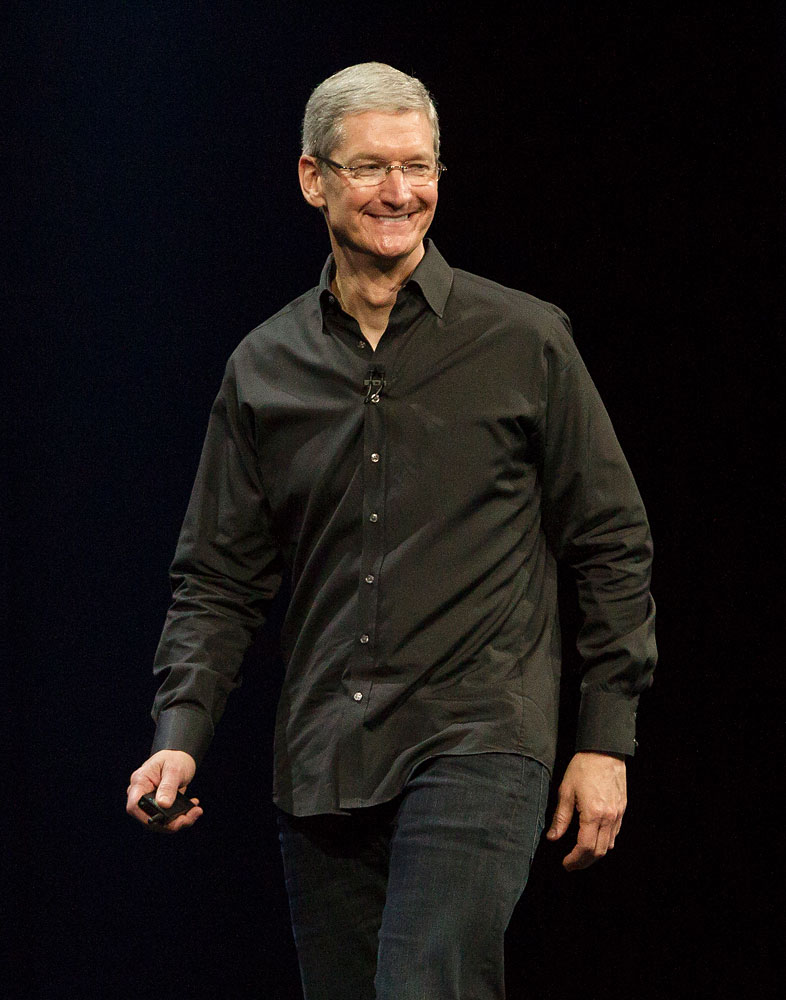
Just days ago, Tim Cook stood before Alabama Governor Robert Bentley and local officials, imploring lawmakers in his home state to accelerate progress for lesbian, gay, bisexual, and transgender (LGBT) equality. “As a state, we took too long to take steps toward equality,” he said. “We were too slow on equality for African-Americans. We were too slow on interracial marriage. And we are still too slow on equality for the LGBT community.”
Now, the Apple CEO is taking a different sort of stand—one that is deeply personal but hugely impactful. “I’m proud to be gay,” Cook wrote in Bloomberg Businessweek yesterday, forever changing the game for equality in corporate culture.
To those who think that we might be past the point of caring about another coming out story, think again. At a time when LGBT people can still be fired in a majority of states simply for being who they are, not to mention the staggering rates of discrimination and violence that inflict the community, we still have a lot to learn from hearing the stories of LGBT people — from football players to news anchors to high school students to the CEO of a Fortune 100 company.
Sadly, openly gay CEOs are a rarity in today’s corporate climate. Even as more and more companies provide policies and protections for their LGBT employees, LGBT people are vastly underrepresented in the C-Suite. That might help explain why most LGBT employees (53%) stay closeted at work, fearful to bring their full, authentic selves to the office. Yesterday, Cook took a crack at that glass closet though, giving hope and possibility to LGBT people outside of the executive suite. If you can see it, you can be it.
But Cook’s decision to come out publicly does not just affect us here in the U.S., the impact spans across borders to places where climates are even more dire for LGBT people. Equality is slowly becoming not just a civil rights issue, but also an economic one. As more and more global corporations expand protections for LGBT employees, and now as more industry leaders announce that they themselves are LGBT, companies must also consider the implications anti-LGBT laws have on their employees in countries where they operate. In today’s world, equality affects the bottom line and more corporations than ever are realizing discrimination is bad for business.
As the leader of the nation’s only LGBT advocacy organization that works solely in the court of public opinion, I know that nothing builds acceptance and understanding quite like the power of storytelling. That’s why Cook’s decision to publicly announce that he’s gay isn’t just “another coming out story,” it’s a game-changer for LGBT people everywhere.
More Must-Reads from TIME
- Donald Trump Is TIME's 2024 Person of the Year
- Why We Chose Trump as Person of the Year
- Is Intermittent Fasting Good or Bad for You?
- The 100 Must-Read Books of 2024
- The 20 Best Christmas TV Episodes
- Column: If Optimism Feels Ridiculous Now, Try Hope
- The Future of Climate Action Is Trade Policy
- Merle Bombardieri Is Helping People Make the Baby Decision
Contact us at letters@time.com